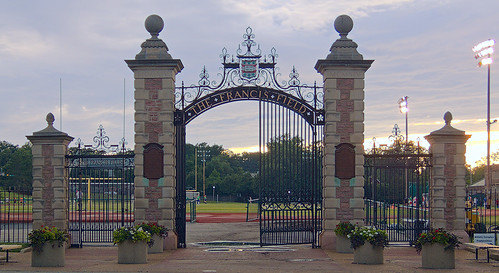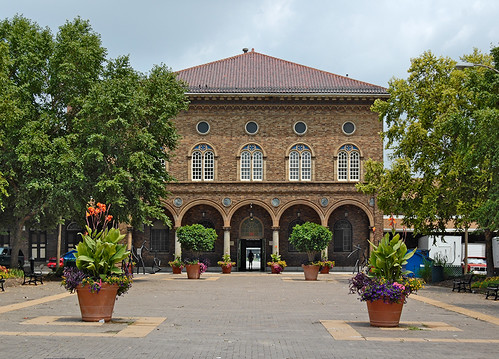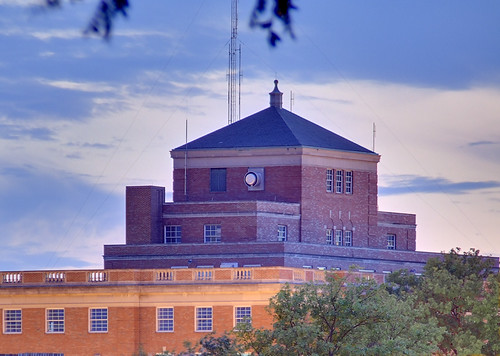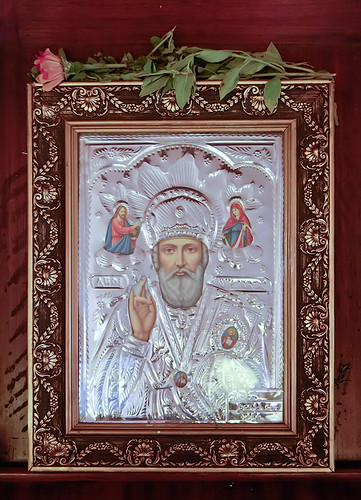
Icon of Saint Nicholas, at Saint Nicholas Greek Orthodox Church, in Saint Louis, Missouri
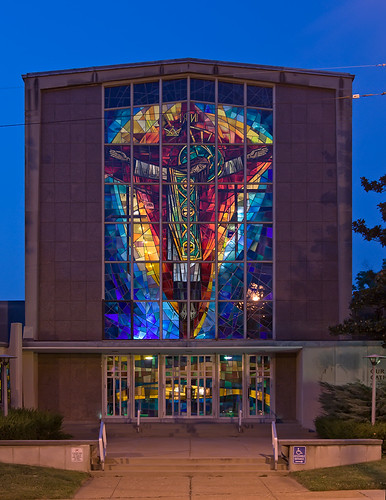
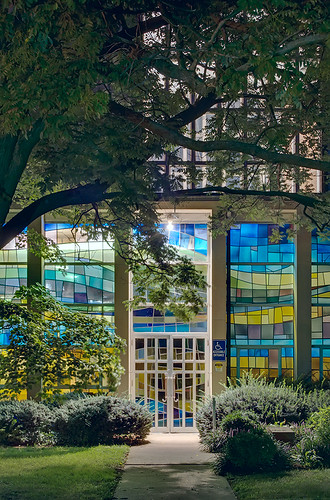
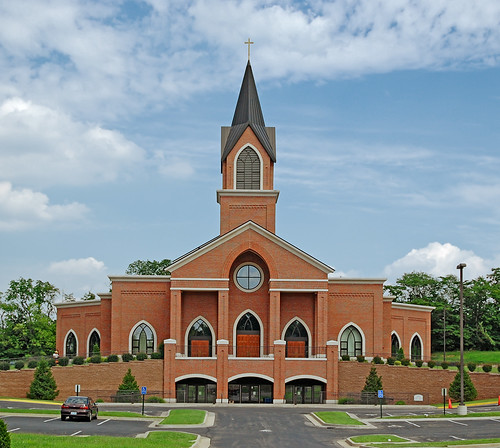

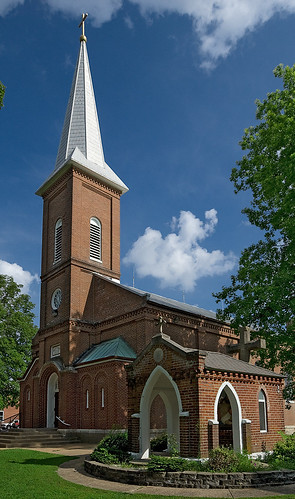
St. John's 'Gildehaus', as it is know in the area, was founded in 1839 as a mission called St. John the Baptist by the Jesuit Fathers. It is called St. John's 'Gildehaus' to honor John Dietrich Gildehaus and his wife Anna Clara, who in 1848 donated by deed the original property consisting of about 10 acres. In 1865, Dietrich bequeathed the remaining 23 1/2 acres of the so-called church farm to be passed to St. John's Church upon the death of his wife, Clara. The property in total encompasses about 33 1/4 acres. In February 1939, ownership of the property was passed from St. Louis University (the holding corporation of the Jesuit Missions) to the Archdiocese of St. Louis, Archbishop John Joseph Glennon...
The parish is located in a rural, unincorporated area of Franklin County, Missouri. The parish boundaries are in the townships of Union, St. John's and Boles.
The present brick church was built in 1863. The rectory about 1875. Both church and rectory are still of sound construction.
As the spiral of modern art history continues to wind down, we can see the increasing demand for tradition in the visual arts. Although much damage to academic education has been done, there are more and more artists, organizations and schools around the world trying to bring the traditions back, to restore the values left to us by the Old Masters.While painting portraits of the wealthy and powerful may have little to do with the promotion and improvement of the liturgical arts, the long tradition of art as a virtue is of incomparable value over the contemporary view of art as an expression of the artist's feelings. It also allows us to have a more objective way of judging the objects of art.
Ultimately, the aim of such schools of Realist art should be to train artists who are able to draw to a very high standard; have a deep understanding and knowledge of anatomy, perspective and composition as foundations for great painting; have positive attitudes toward life and nature, and see it and express it in their works with uncompromising truth; and have a great knowledge of the Old Masters' methods and techniques, and apply them to their own works in order to preserve these methods for future generations of artists.
— Why we must keep the traditions alive, by Igor Babailov
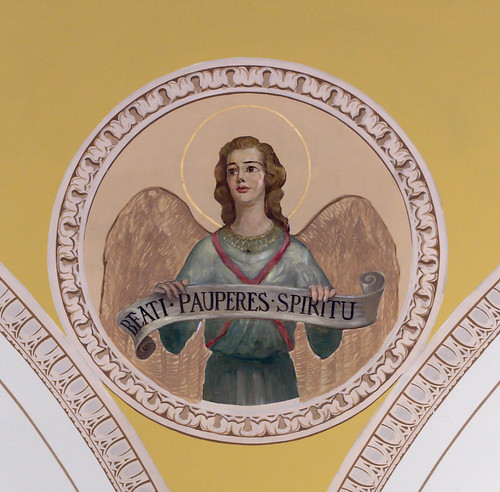
The nature then of Christ's teaching is attested by His own holy statements: that they who wish to arrive at eternal blessedness may understand the steps of ascent to that high happiness. Blessed, He says, are the poor in spirit, for theirs is the kingdom of heaven (Matthew 5:3). It would perhaps be doubtful what poor He was speaking of, if in saying blessed are the poor He had added nothing which would explain the sort of poor: and then that poverty by itself would appear sufficient to win the kingdom of heaven which many suffer from hard and heavy necessity. But when He says blessed are the poor in spirit, He shows that the kingdom of heaven must be assigned to those who are recommended by the humility of their spirits rather than by the smallness of their means. Yet it cannot be doubted that this possession of humility is more easily acquired by the poor than the rich: for submissiveness is the companion of those that want, while loftiness of mind dwells with riches. Notwithstanding, even in many of the rich is found that spirit which uses its abundance not for the increasing of its pride but on works of kindness, and counts that for the greatest gain which it expends in the relief of others' hardships. It is given to every kind and rank of men to share in this virtue, because men may be equal in will, though unequal in fortune: and it does not matter how different they are in earthly means, who are found equal in spiritual possessions. Blessed, therefore, is poverty which is not possessed with a love of temporal things, and does not seek to be increased with the riches of the world, but is eager to amass heavenly possessions.— Sermon 95, Saint Leo the Great.

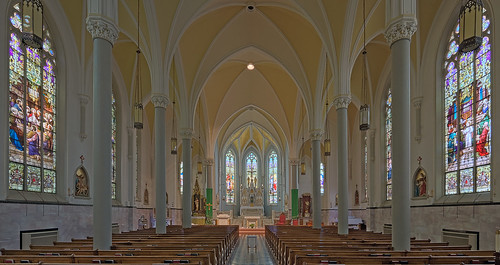
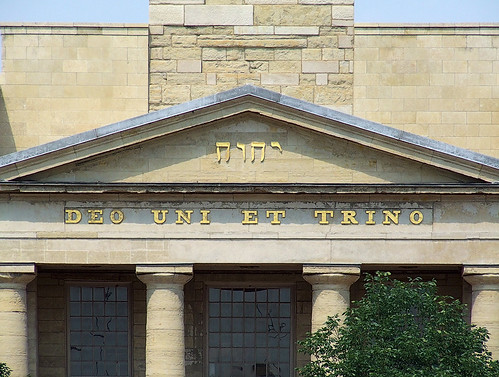
1. In liturgical celebrations, in songs and prayers the name of God in the form of the tetragrammaton YHWH is neither to be used or pronounced.
2. For the translation of the Biblical text in modern languages, destined for liturgical usage of the Church, what is already prescribed by n. 41 of the Instruction Liturgiam authenticam is to be followed; that is, the divine tetragrammaton is to be rendered by the equivalent of Adonai/Kyrios: "Lord", "Signore", "Seigneur", "Herr", "Señor", etc.
3. In translating, in the liturgical context, texts in which are present, one after the other, either the Hebrew term Adonai or the tetragrammaton YHWH, Adonai is to be translated "Lord" and the form "God" is to be used for the tetragrammaton YHWH, similar to what happens in the Greek translation of the Septuagint and in the Latin translation of the Vulgate.
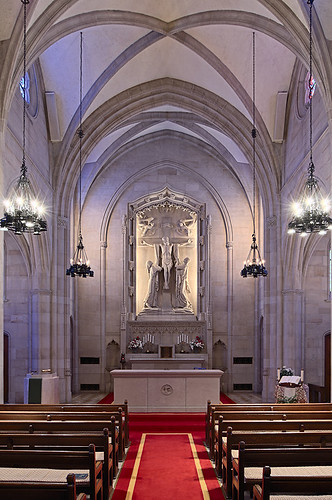
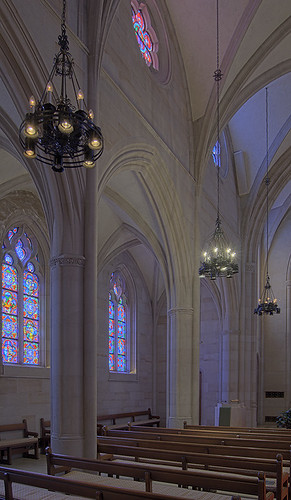
The wisdom of the scribe depends on the opportunity of leisure; and he who has little business may become wise.
How can he become wise who handles the plow, and who glories in the shaft of a goad, who drives oxen and is occupied with their work, and whose talk is about bulls? He sets his heart on plowing furrows, and he is careful about fodder for the heifers.
So too is every craftsman and master workman who labors by night as well as by day; those who cut the signets of seals, each is diligent in making a great variety; he sets his heart on painting a lifelike image, and he is careful to finish his work.
So too is the smith sitting by the anvil, intent upon his handiwork in iron; the breath of the fire melts his flesh, and he wastes away in the heat of the furnace; he inclines his ear to the sound of the hammer, and his eyes are on the pattern of the object. He sets his heart on finishing his handiwork, and he is careful to complete its decoration.
So too is the potter sitting at his work and turning the wheel with his feet; he is always deeply concerned over his work, and all his output is by number. He moulds the clay with his arm and makes it pliable with his feet; he sets his heart to finish the glazing, and he is careful to clean the furnace.
All these rely upon their hands, and each is skilful in his own work. Without them a city cannot be established, and men can neither sojourn nor live there.
Yet they are not sought out for the council of the people, nor do they attain eminence in the public assembly. They do not sit in the judge's seat, nor do they understand the sentence of judgment; they cannot expound discipline or judgment, and they are not found using proverbs.
But they keep stable the fabric of the world, and their prayer is in the practice of their trade.— Sirach 38:24-34 (RSVCE) (found in the Greek Septuagint version of the Old Testament)
